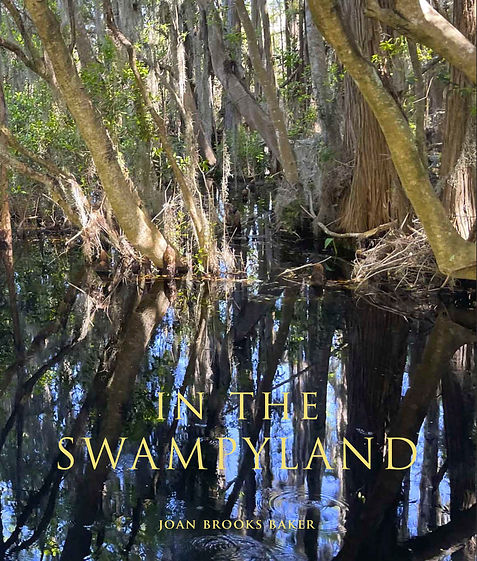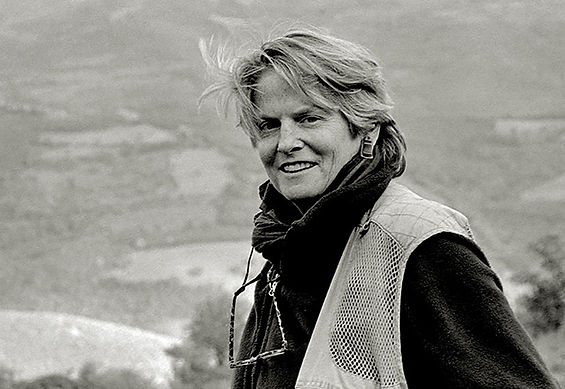
“I believe we all live in a swampyland, entangled in brambles and snares, and yet the swampyland provides and surrounds us with its nourishing seeds.”
— Joan Brooks Baker
Joan Brooks Baker's In the Swampyland persuades us to ponder the notion of our own swampyland and discover how we can survive these dark, dangerous, and yet fecund locales in our minds and hearts.

In the Swampyland
Cockroaches, venomous snakes, biting frogs, Br’er Rabbit. These are among the lively characters in Joan Brooks Baker’s second book, a collection of stories called In the Swampyland, which spans the author’s life from her childhood in New York City to her eye-opening, sometimes-risky world travels.
In the Swampyland examines the world in which Baker grew up. It aims equally intense scrutiny at the cultures she’s visited in her search for belonging, from the jungles of Colombia to the streets of India and the attractions of the American South.
Following her award-winning memoir, The Magnolia Code (Fresco Books, 2020), In the Swampyland reaches even deeper into memory, meaning, and desire. One story, told in personal images, describes what Baker calls “her own swampyland.”
Events

Book Launch
September 9, 2025
6pm
Santa Fe, New Mexico
—
East Coast Book Launch
September 16, 2025
6pm
1313 Madison Avenue, New York, NY
—
Reading and Discussion
January 24, 2026
4pm
145 Washington Street, Santa Fe, NM
Advance Praise for In the Swampyland

About Joan
Joan Brooks Baker was born in 1944, and brought up in New York City by dyed-in-the-wool Southern parents. At age eleven she was taught how to make a pinhole camera with a shoebox, which she took, along with her deep curiosity, down the city’s streets, Central Park or just simply the subway. She came to understand that she was making mental snapshots in order to create sense out of the chaos in her life.
Joan has exhibited her photographs and photographic monoprints in several galleries, mainly in Santa Fe, New Mexico and New York City. The United Nations exhibit "Progress of the World's Women" featured Joan's images of India's female ragpickers.
Her work has been featured in Cross by Kelly Klein, Searching for Mary Magdalene: A Journey Through Art and Literature by Jane Lahr, Ms. Magazine, Men’s Vogue and Town & Country magazine, The Dead Mule of Southern Literature; Symbols of Faith, A Visual Journey to the Historic Churches of New Mexico, to name a few. Her last photographic project, and one that spanned several years, was of The Black Madonna. In her search to find the meaning of this icon’s legend, Joan began to relate the Black Madonna’s narrative to women she admired and to herself.
It was through the Black Madonna presentation that she was inspired to write her memoir, The Magnolia Code.